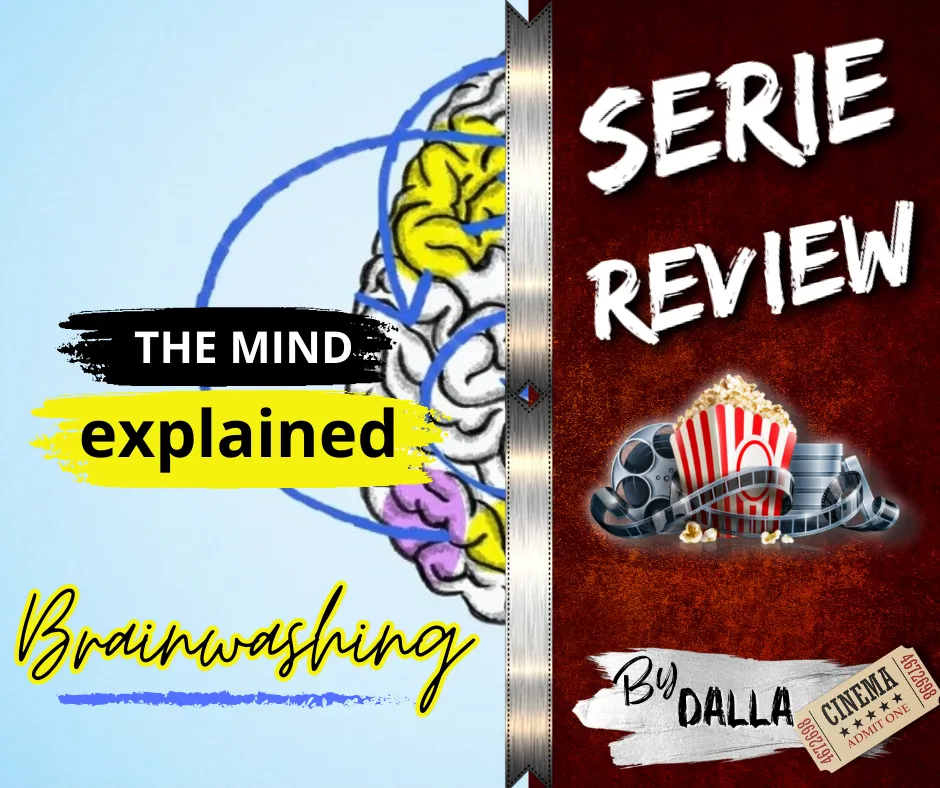

¡Saludos chicos! 🤗 Como ya les he dicho en mis post anteriores, que he dejado por aquí, estoy haciendo una review de cada uno de los capítulos de la serie llamada: "The Mind Explained", ya que los capítulos son realmente muy educativos y me interesa que quede un pequeño resumen de ellos en mi blog que enfoco principalmente en #Psicoayuda, así que sin más que decir hoy les vengo a hablar de este llamado Brainwashing.
Por aquí les dejo los otros post que he hecho sobre la serie: 1-¿Cómo enfocar la Atención? 2-Personalidad en pocas palabras 3-Creatividad en pocas palabras, por si les interesa leerlos también.
Greetings guys! 🤗 As I have already told you in my previous posts that I have left around here, I am doing a review of each of the chapters of the series called: "The Mind Explained ", since the chapters are really very educational and I am interested that there is a small summary of them in my blog that I focus mainly on #Psicoayuda, so without more to say today I come to talk about this one called Brainwashing.
Here are the other posts I've done on the series: 1-How to Focus Attention 2-Personality Explained 3-Creativity Explained, in case you are interested in reading them too.

Les cuento que cada vez que veo uno de estos capítulos es como si pasaran por mi mente un montón de imágenes de neuroanatomía intentando recordar todas estas conexiones neuronales de las que hablan estos científicos y entonces me doy cuenta de que una de las materias más difíciles de la carrera fue esa y, a menos que seas especialista como estos Neurólogos, es muy poco probable que puedas recordar todo eso y entender toda la complejidad del cerebro humano.
Pero, bueno... aquí dejando de lado un poco mi pasado con materias difíciles de aprobar en la universidad 😅😅, me enfocaré en lo que trata este capítulo… l
Ka palabra "Brainwashing" (Lavado de Cerebro) probablemente se asocie de forma despectiva cuando queremos decir que una persona ha cambiado completamente su forma de ser o actuar con respecto a algo, que luzca como otra persona o en términos más coloquiales: "se haya vuelto loco", pero la realidad es que la connotación de este término y su origen es mucho más complejo que eso que creemos.
En este capítulo hablan del origen bastante oscuro de esa palabra y del por qué se empezó a usar tanto una vez que se supo de donde salió, en especial me gustó porque aborda algo que estamos viendo actualmente con mayor frecuencia que años anteriores al surgimiento de la pandemia y son los grupos radicales que creen en teorías de conspiraciones que explicarían muchos de los acontecimientos actuales.
I tell you that every time I see one of these chapters it is as if a lot of neuroanatomy images go through my mind trying to remember all these neuronal connections that these scientists talk about and then I remember that one of the most difficult subjects of the career was that one and, unless you are a specialist like these Neuroscientists, it is very unlikely that you can remember and understand all the complexity of the human brain.
I tell you that every time I see one of these chapters it is as if a lot of neuroanatomy images go through my mind trying to remember all these neuronal connections that these scientists talk about and then I remember that one of the most difficult subjects of the career was that one and, unless you are a specialist like these Neuroscientists, it is very unlikely that you can remember and understand all the complexity of the human brain.
But well, here leaving aside a bit my past with difficult subjects to pass in college 😅😅, I will focus on what this chapter is about... the word "Brainwashing" is probably associated in a derogatory way when we want to say that a person has completely changed his way of being or acting with respect to something, that he looks like another person or in more colloquial terms: "he has gone crazy", but the reality is that the connotation of this term and its origin is much more complex than that we think.
In this chapter they talk about the rather obscure origin of that word and why it started to be used so much once it was known where it came from, I especially liked it because it addresses something that we are currently seeing more frequently than years before the emergence of the pandemic and that is the emergence of radical groups that believe in conspiracy theories that would explain many of the current events.
But well, here leaving aside a bit my past with difficult subjects to pass in college 😅😅, I will focus on what this chapter is about... the word "Brainwashing" is probably associated in a derogatory way when we want to say that a person has completely changed his way of being or acting with respect to something, that he looks like another person or in more colloquial terms: "he has gone crazy", but the reality is that the connotation of this term and its origin is much more complex than that we think.
In this chapter they talk about the rather obscure origin of that word and why it started to be used so much once it was known where it came from, I especially liked it because it addresses something that we are currently seeing more frequently than years before the emergence of the pandemic and that is the emergence of radical groups that believe in conspiracy theories that would explain many of the current events...



Además de eso que les digo arriba, es un capítulo bien interesante porque realmente la existencia de estos grupos con opiniones radicales sobre temas específicos, ha sido algo que desde siempre ha llamado la atención de los grandes científicos que estudian el cerebro humano, sobre todo por el riesgo que terminan desarrollando para el resto de las personas y no solo para el grupo en sí.
Tal es el caso, como muestran en el capítulo, de los "Nazis" en la Segunda Guerra Mundial, me gustó que usaran ese ejemplo porque es el más claro que podemos ver y el que mayor cantidad de personas pueden entender de cómo un pensamiento es capaz de penetrar tanto en la mente de un grupo de personas y extenderse cada vez más.
Una idea que para el resto puede parecer una cosa completamente absurda, pero que puede llegar a ser realmente un problema para la sociedad si se cuenta con líderes extremistas con ese pensamiento y que, además, tiene un gran delirio de grandeza que lo puede llevar a querer adueñarse de todo, expandir su pensamiento a todo el mundo y eliminar a todo el que no piense como él.
Durante muchos años la humanidad intentó encontrar explicación a ese comportamiento de tantas personas y, aunque aún no se entiende del todo, se tiene un gran atisbo de que es lo que realmente sucedió a nivel mental en un principio y del por qué todo se volvió tan grande y tan destructivo.
Al igual que con ese grupo, ocurre con grupos más pequeños como las "Sectas", ejemplo que también dan en el programa y donde nos explican que, si evaluamos bien el panorama de estas últimas, la mayoría de las personas que las conforman han pasado por algún hecho muy traumático, o algún antecedente de importancia en su vida que los ha hecho más susceptibles de ser manipulados y hacer que adopten una creencia que no poseían y las lleguen a defender como si fuera una absoluta verdad.
In addition to what I say above, it is a very interesting chapter because really the existence of these groups with radical opinions on specific issues, has always been something that has attracted the attention of the great scientists who study the human brain, especially because of the risk that they end up developing for the rest of the people and not only for the group.
Such is the case, as they show in the chapter, of the "Nazis in World War II," I liked that they used that example because it is the clearest we can see and the one that most people can understand, of how a thought is able to penetrate so much in the mind of a group of people and spread more and more.
A thought that for the rest may seem a completely absurd thing, but that can become a real problem for society if you have extremist leaders with that thought and who, in addition, have a great delusion of grandeur that can lead him to want to take over everything, expand his thought to everyone and eliminate anyone who does not think like him.
For many years mankind tried to find an explanation for this behavior of so many people and, although it is still not fully understood, there is a great glimpse of what really happened in the beginning and why everything became so big and so destructive.
As with this group, it happens with smaller groups such as the "Cults", example that they also give in the program and where they explain us that, if we evaluate well the panorama of these last ones, most of the people that conform them have gone through some very traumatic event, or some antecedent of importance in their life that has made them more susceptible to be manipulated and to make them adopt a belief that they did not possess and to defend it as if it were an absolute.

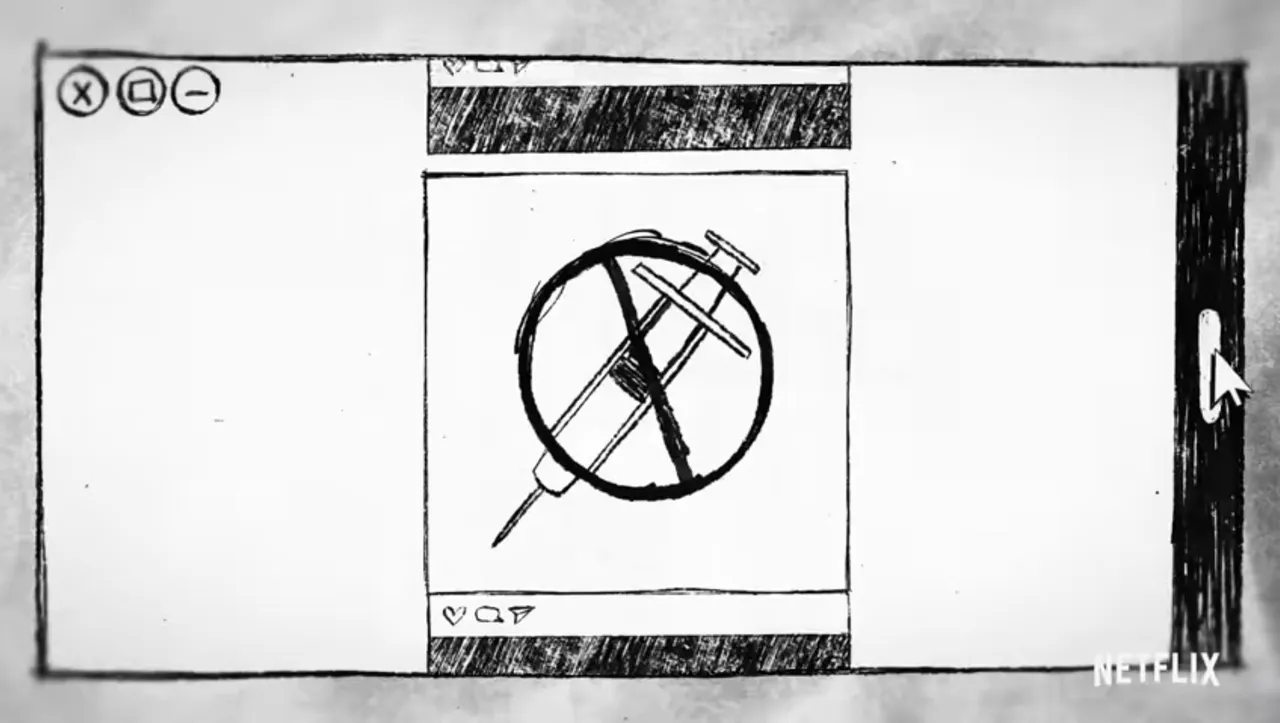

El problema con estos grupos pequeños (y es donde el principio de libre albedrío y libertad de pensamiento de cada quien se pierde) es el mismo que presentaban los Nazis, es que lo que piensan no quieren que solo quede entre esos pocos integrantes, sino que quieren que sea un pensamiento generalizado y el asunto se complica porque en muchas oportunidades los líderes del culto tienen problema mentales que replica en los demás que son sus seguidores, los cuales los idealizan y se dejan manipular para cometer delitos o atentar contra la vida de otros en pro de ese pensamiento.
Esto que nos explican en el programa me hizo recordar a una patología que vemos en Psiquiatría y se llama "Psicosis Compartida" en la que una persona sana después de pasar mucho tiempo con una persona con una idea delirante (Psicótica) en conjunto con otros muchos factores personales, termina desarrollando el mismo delirio compartiendo la misma realidad de ese enfermo, es algo así como si la psique se cansara de luchar contra ese pensamiento tan repetitivo y la haga dudar de sí misma hasta que crea todo lo que le estuvo diciendo la otra persona todo ese tiempo, aun cuando al principio estaba clara de que esa persona estaba delirando.
¡Sí! ¿Parece loco cierto? Pues así puede suceder y no crean que estamos 100% exentos de que nos suceda algo así, lo he dicho en muchas oportunidades, pero lo vuelvo a decir, el cerebro humano no ha evolucionado tanto como creemos, realmente aún seguimos compartiendo mucho con ese cerebro del homosapiens, y es por eso que aun en la actualidad sin siquiera ser conscientes de ello buscamos patrones correlativos entre las cosas, y dichos patrones pueden meternos en muchos problemas.
The problem with these small groups (and it is where the principle of free will and freedom of thought of each one is lost) is the same that the Nazis presented, is that what they think does not want to remain only among those few members, but they want it to be a generalized thought and the matter is complicated because in many opportunities the cult leaders have mental problems that replicate in others who are their followers, they idealize them and manipulate them to commit crimes or attempt against the lives of others in favor of that thought.
This explained in the program reminded me of a pathology that we see in Psychiatry and is called "Shared Psychosis" in which a healthy person after spending a long time with a person with a delusional idea (Psychotic) together with many other personal factors, ends up developing the same delirium sharing the same reality of that sick person, it is something as if the psyche gets tired of fighting against that repetitive thought and makes it doubt itself, until it believes everything that the other person was telling him/her all that time, even when at the beginning it was clear that that person was delirious.
Yes, it sounds crazy, doesn't it? I have said it many times, but I say it again, the human brain has not evolved as much as we think, actually we still share a lot with that homosapien brain, and that is why even today without even being aware of it we look for correlative patterns between things, and those patterns can get us into a lot of trouble.

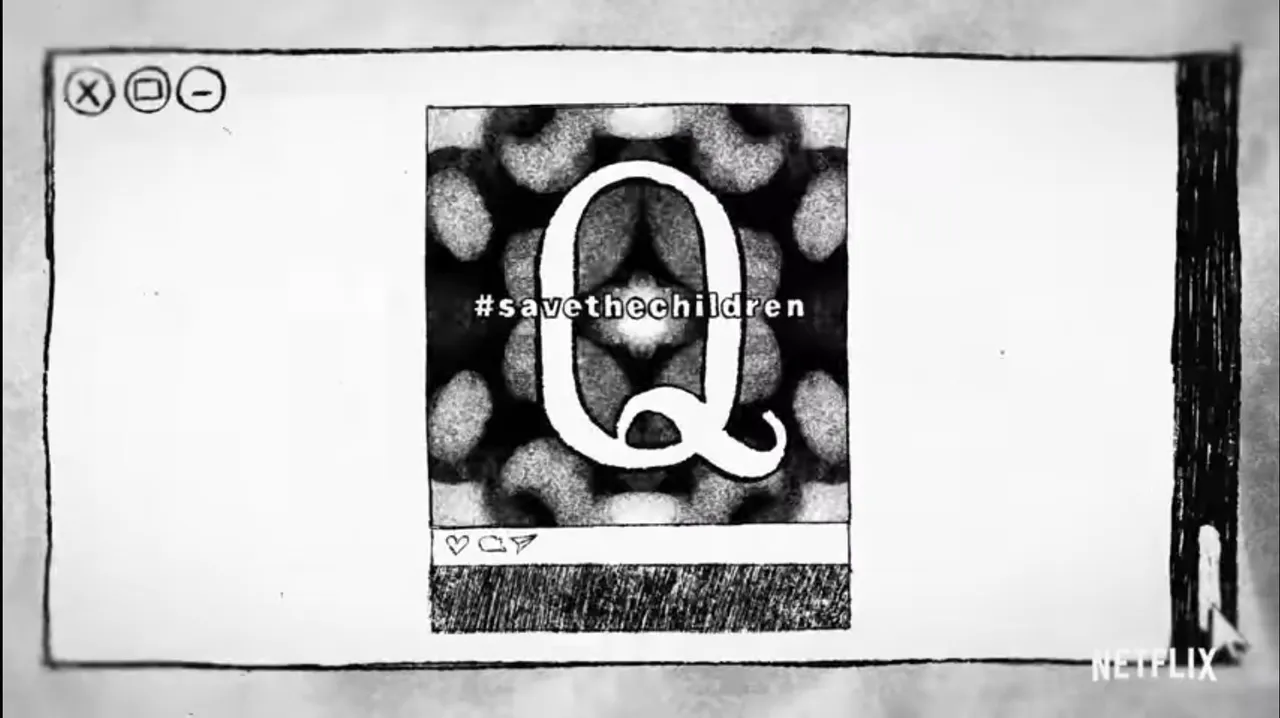

Inicialmente esta búsqueda de patrones surgió como consecuencia de querer protegerse de los depredadores, pero obviamente con el pasar de los años, cuando ya no tuvimos que defendernos constantemente de animales salvajes, el cerebro igual mantuvo su capacidad de desarrollar alertas y por consiguiente sus mecanismos de autoprotección, tanto físicos como mentales, pero, por supuesto, ahora se enfocan en la actualidad.
Una actualidad que, por cierto, vemos que es lo suficientemente bizarra como para que el cerebro humano pueda tener facilidad para confundirse y establecer correlaciones entre noticias, hechos, personas, etc, que no las tienen en verdad, o que sí la tienen, pero no necesitan desarrollar tal nivel de alerta y menos esos mecanismos de defensa tan extremos, que pueden llegar a ser tan destructivos para otros.
Esa es una verdad que no solo se los estoy diciendo yo, está súper comprobada por la ciencia, y es que el cerebro humano una vez que se aferra a un pensamiento sobre una realidad que no existe, va a seguir pensando que existe, sino escucha uno de esos audios donde te dicen una palabra, pero alguien te dice que realmente es otra, inconscientemente puedes empezar a escuchar esa que te dijeron porque tus neuronas ya crearon esa conexión, ya se creó el recuerdo, ahora hará falta alejarte lo suficiente de ese recuerdo para olvidarlo, porque si no lo haces, seguirás pensando en él como una realidad latente.
Initially this search for patterns arose as a consequence of wanting to protect itself from predators, but obviously over the years, when we no longer had to constantly defend ourselves from wild animals, the brain still maintained its ability to develop alerts and therefore its self-protection mechanisms, both physical and mental, but, of course, now they are focused on the current reality.
A reality that, at present, by the way, we see that it is bizarre enough so that the human brain can easily get confused and establish correlations between news, facts, people, etc., that do not really have them, or that do have them, but do not need to develop such a level of alertness and less such extreme defense mechanisms, which can become so destructive to others.
That is a truth that I am not only telling you, it is super proven by science, and it is that the human brain once it clings to a thought about a reality that does not exist, it will continue to think that it exists, if it does not listen to one of those audios where they tell you a word, but someone tells you that it is really another one, unconsciously you can start to listen to the one you were told because your neurons have already created that connection, the memory has already been created, now you need to move far enough away from that memory to forget it, because if you don't, you will continue thinking about it as a latent reality.

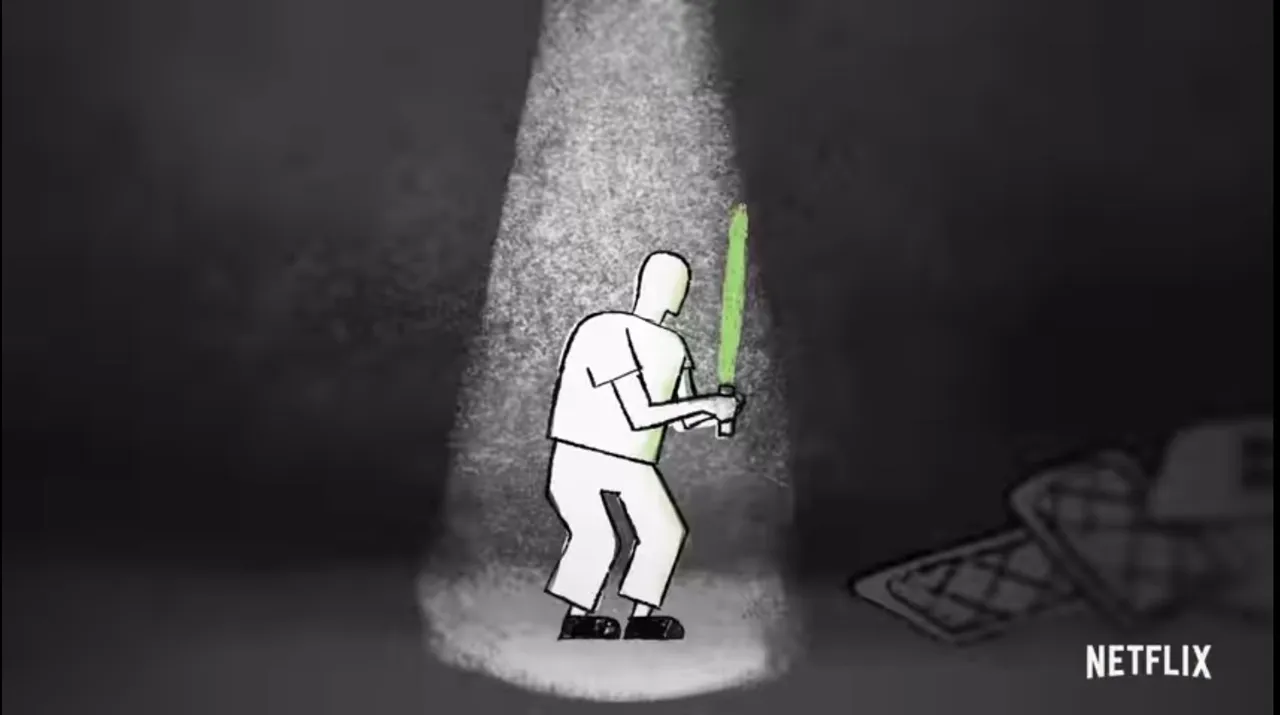

Todo esto se los digo aplicado a las personas que presentan en este capítulo que son ejemplos de esas que han sido influenciadas y han formado parte de estos grupos radicales, pero que en algún momento de su vida tuvieron una apertura de su mente lo suficientemente fuerte como para aceptar que lo que les hicieron pensar podría ser mentira, hasta que ¡por fin! aceptaron que lo era.
El que hayan traído estas personas al capítulo es una demostración muy gráfica de cómo funciona la mente de los que pasan a formar parte de estos grupos con estos pensamientos y cómo, aun cuando sea difícil, pueden llegar a tener la suficiente Apertura Cognitiva para salir de ese pensamiento que estaba tan arraigado y que fue implantado por otra persona.
Pareciera que son personas que no pueden cambiar porque la idea era demasiado radical, pero sí pueden y es un ejemplo de cómo, si ellas pasando por todo lo que han pasado pudieron cambiar, entonces cualquiera en sus plenas facultades mentales ¡también podrán!
El capítulo nos permite además entender cómo funciona el proceso mentalmente y por qué algunos podrían ser los blancos más fáciles para estos grupos, al ser, por ejemplo, socialmente muy excluidos, tener poca confianza en sí mismos, sentirse muy desconectados de su entorno o con una pérdida de su identidad.
All this I say applied to the people presented in this chapter who are examples of those who have been influenced and have been part of these radical groups, but who at some point in their lives had an open mind strong enough to accept that what they were made to think could be a lie, until they finally accepted that it was.
That they brought these people into the chapter is a very graphic demonstration of how the minds of those who become part of these groups with these thoughts work and how, even when it is difficult, they can become cognitively open enough to get out of that thought that was so ingrained and that was implanted by someone else. It seems that these are people who cannot change because the idea was too radical, but they can, and it is an example of how, if they, going through everything they have gone through, were able to change, then anyone in their full mental faculties will be able to change as well.
The chapter also allows us to understand how the process works mentally and why some might be the easiest targets for these groups, being, for example, socially very excluded, having little self-confidence, feeling very disconnected from their environment or with a loss of identity.

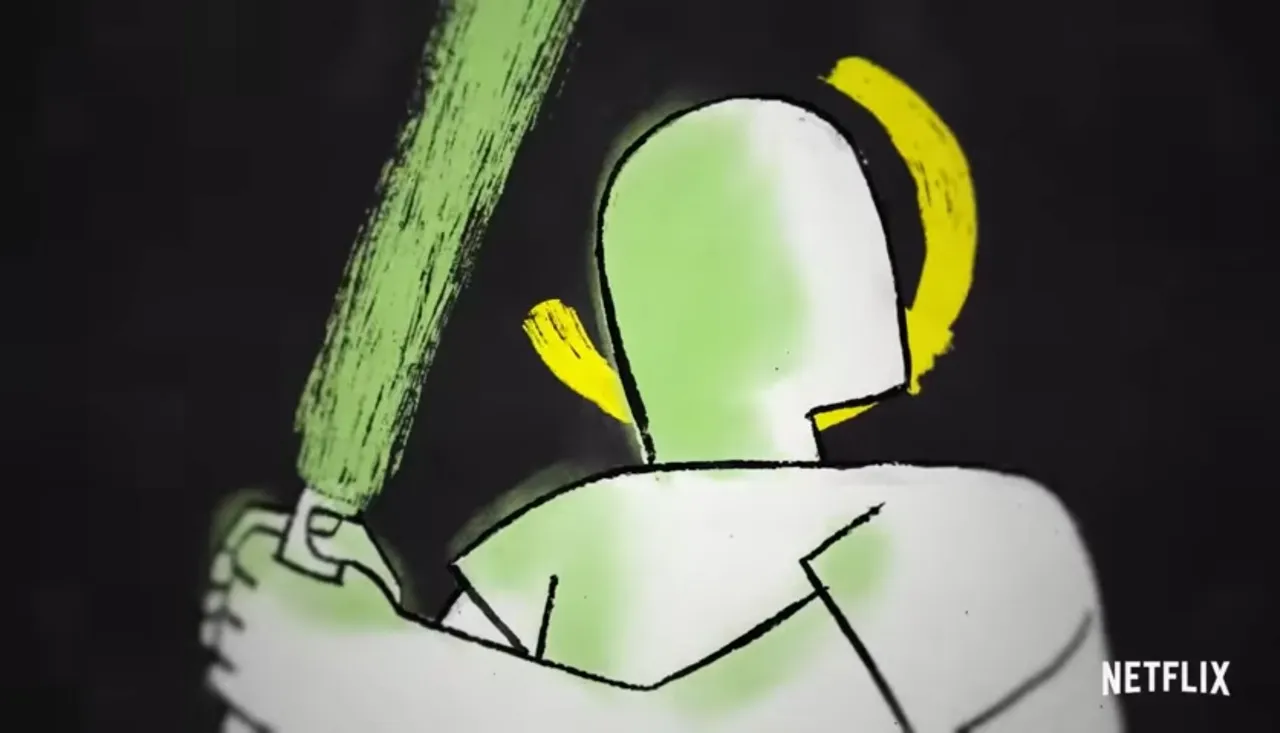

Hay un punto importante con el que quiero finalizar, que tocan en el programa que es un elemento clave para comprender por qué hay personas que se suman a estas ideas y terminan tan inmersos en ellas y es el "Sesgo de Confirmación" qué es esa porción de nuestra psique que nos hace buscar patrones que apoyen nuestras ideas, por lo que un pensamiento que es implantado por alguien podría ser fácilmente extendida por ti, si llevas tu sesgo de confirmación al extremo de forma inconsciente
Todo esto que acabo de decir se complica más cuando le sumamos a este factor la necesidad de pertenecer a un grupo, de encontrar personas que piensen igual que tú, que apoyen esas ideas y con las cuales sentirte identificado. Al final lo único que busca el cerebro humano con todo esto es activar ese cerebro primitivo que forma parte de nosotros desde la prehistoria a través de la activación del centro del placer.
Por supuesto esto que les he dicho a lo largo de estas 1500 palabras realmente es algo mínimo a todo lo que trae el capítulo y además todo esto tiene mucho de mis conocimientos e interpretación, así que, si son como yo, que les gusta comprender a profundidad la mente humana ¡Créanme les va a gustar y van a querer verlo!
There is an important point with which I want to finish, that they touch in the program that is a key element to understand why there are people who join these ideas and end up so immersed in them and it is the "Confirmation Bias " which is that portion of our psyche that makes us look for patterns that support our ideas, so that a thought that is implanted by someone could be easily extended by you, if you take your bias to the extreme unconsciously.
All this that I have just said becomes more complicated when we add to this factor the need to belong to a group, to find people who think like you, who support those ideas and with whom you feel identified. In the end the only thing that the human brain seeks with all this is to activate the primitive brain that has been part of us since prehistoric times through the activation of the pleasure center.
Of course what I have told you throughout these 1500 words is really something minimal to everything that brings the chapter and of course has much of my knowledge and interpretation, so, if you are like me, who like to understand in depth the human mind, believe me you will like it and you will want to see it!

¿Me gustó? ¡Me encantó! Es una forma bastante sencilla de entender por qué existen en la actualidad tantos grupos defendiendo puntos que para el resto pueden parecer completamente fuera de lugar y esa comprensión nos hará saber cuándo podemos empatizar con ellos o cuando debemos alejarnos lo suficiente para que no nos afecten.
¿Lo vería otra vez? ¡Completamente! De hecho, quiero verla con mi papá que tiene, tristemente, unas ideas políticas bastante radicales y siento que necesita ver esto, aunque probablemente salga del capítulo creyendo más en sus ideas, así que lo pensaré un rato más 🙃.
¿Lo recomendaría? Siento que es algo que todo mundo debe ver porque en la actualidad vivimos en un mundo muy complejo, donde muchas personas han pasado por procesos emocionales difíciles y, aunque no es algo que les va a ocurrir a todos, sobre todo ellas pueden ser vulnerables y llegar a ser susceptibles de caer en la defensa extrema de una idea impuesta por otra persona que le haga un *Brainwashing, sin siquiera darse cuenta.
**Did I like it? I loved it! It's a pretty simple way to understand why there are so many groups today advocating points that to the rest of us may seem completely out of place and that understanding will let us know when we can empathize with them or when we should back off enough so they don't affect us.
Would I watch it again? Absolutely yes! I actually want to watch it with my dad who has, sadly, some pretty radical political views and I feel like he needs to see this, although he'll probably come out of the episode believing more in his ideas, so I'll think about it for a while longer 🙃.
Would you recommend it? I feel like it's something that everyone should watch because we currently live in a very complex world, where many people have gone through difficult emotional processes and, although it's not something that's going to happen to everyone, especially they can be vulnerable and become susceptible to falling into the extreme defense of an idea imposed by another person who does a *Brainwashing to them, without even realizing it.

Thank you for reading me!

The rest of the images were taken as screenshots from the documentary on Netflix.
@liveofdalla using Canvas App and Picsart App.
